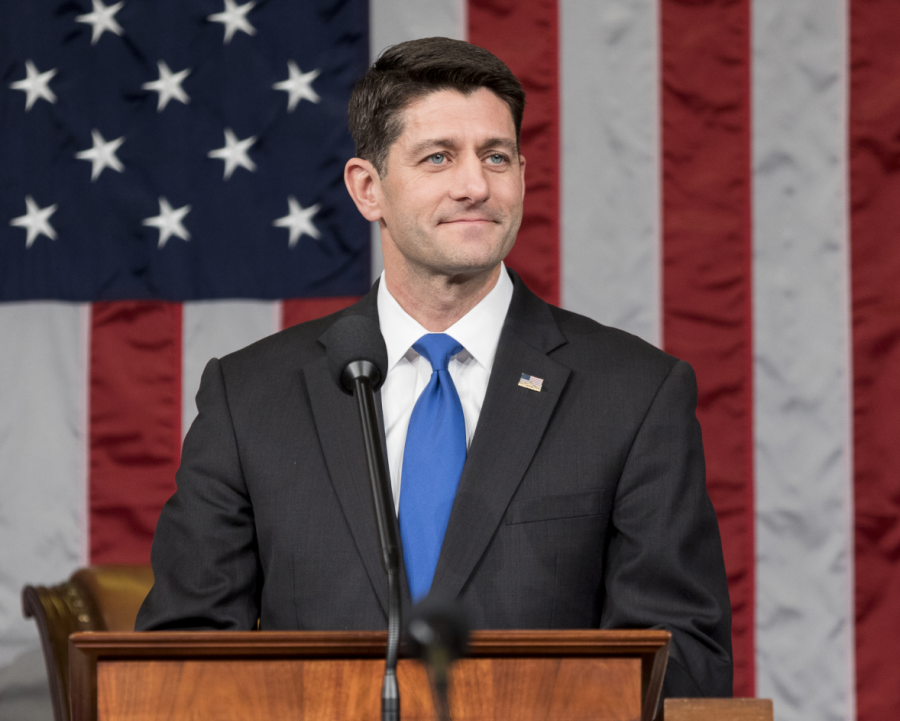A potential House shift is on the horizon
Credit: Wikimedia Commons
Paul Ryan announced his decision not to run for reelection in the 2018 Midterms. Ryan currently serves as the Speaker of the House of Representatives. At least 42 other House Republicans are vacating their seats this fall.
June 5, 2018
In the age of Trump, bipartisan backlash against the presidential administration has become routine. In the midst of this, 43 House Republicans have announced their plans to retire, resign outright, or run for higher office — the most retirements between any recent presidential election or midterm election cycle to date.
House Speaker and Wisconsin Republican Paul Ryan recently announced his resignation, after serving as the highest ranking congressman in the U.S. House of Representatives since 2015. Ryan said of his resignation, “I like to think I’ve done my part, my little part in history to set us on a better course.” Speculation as to why Ryan decided to resign was manifold, with some suspecting Ryan’s potential worries about losing the speakership in the 2018 midterms or losing the Republican majority in the House as a whole.
In his resignation announcement on April 11th, however, Speaker Ryan assured reporters that such a possibility played “[no role] whatsoever, actually,” in his decision, and explained that he no longer wanted to be a “Sunday dad” but rather wants to spend more time in his native Wisconsin with his kids and wife Janna.
While the Speaker’s resignation might be the most notable, the extraordinarily high number of legislative resignations is attributed by Andrew Prokop of Vox News to both fearing Republican backlash stemming from the President’s poor approval ratings and the sweeping wave of Democratic victories in the 2017 and 2018 special elections. As a matter of fact, Democrats only need to take back 24 more seats in the House with the current congressional makeup in order to once again become the majority — and these many vacant seats combined with substantial anti-Trump sentiment are leaving many Democrats hopeful.
Fortunately for those yearning for a blue wave, the unprecedented number of resignations has resulted in a lack of Republican incumbency that has historically been a considerable advantage in congressional elections.









